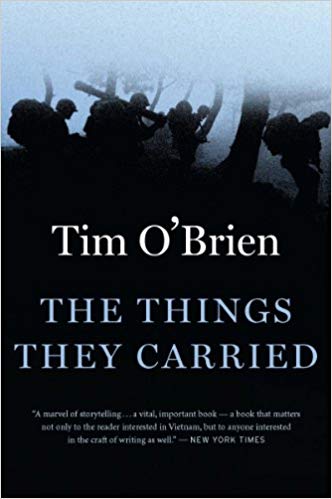

This article is an excerpt from the Shortform summary of "The Things They Carried" by Tim O'Brien. Shortform has the world's best summaries of books you should be reading.
Like this article? Sign up for a free trial here .
How do you handle stress? Do you stick to your principles when the going gets tough? What effect do stories have on you?
The Things They Carried by Tim O’Brien tells the stories of a small company of American soldiers serving in the Vietnam War. Through the narrative, the book blurs the line between autobiography and fiction, leaving the reader unsure as to what is fact and what is myth.
Continue reading to see several The Things They Carried questions that you can use to get more out of your reading.
The Things They Carried Questions
In reading these stories, we explore the harrowing physical and psychological toll of warfare and the dehumanizing and brutalizing effects of combat on human beings. We also see the transformative power that narrative and storytelling have to help us make sense of our experiences and give meaning and clarity to even the most shocking, chaotic, and traumatizing events.
We’ve organized 12 The Things They Carried questions into four exercises that you can do on your own or with a group.
Exercise #1: Consider Your Coping Mechanisms
Think about the tools and methods you use to handle stress in your life.
- Have you ever been in a situation that caused high levels of emotional or physical distress? Describe it in a few sentences.
- Did this stress or burden ever cause you to lash out at others or behave in other ways that you normally wouldn’t? Describe this experience.
- In the future, how can you develop better coping mechanisms to avoid behaving this way?
Exercise #2: Testing Your Convictions
Think about how your ideals and beliefs have been put to the test.
- Have you ever felt pressured to do something against your beliefs because you feared you would lose your reputation if you acted on your convictions? Describe what happened.
- In the future, how can you better stick to your principles?
- Do you think there are times when it is appropriate to sacrifice your personal ideals for some larger cause? Identify an example and explain your reasoning.
Exercise #3: Exploring Trauma
Think about the power of storytelling and remembrance.
- Is there someone who was important in your life that you lost? Describe this person and what they meant to you.
- Do you share stories about this person? If so, why do you do this?
- Would you want your memory to live on through stories after you die, even if the stories aren’t 100 percent accurate? Explain why or why not.
Exercise #4: The Power of Stories
Think about why storytelling is so powerful.
- O’Brien talks about the difference between story-truth and happening-truth. In a few sentences, explain what this means to you.
- Why do you think that, for the war stories O’Brien and the others share, literal truth is less important than the emotional reaction it provokes in the listener?
- The men in The Things They Carried often behave and speak in shockingly brutal ways. Why do you think they do this and what does this say about the effects of combat on human beings?
———End of Preview———

Like what you just read? Read the rest of the world's best summary of "The Things They Carried" at Shortform . Learn the book's critical concepts in 20 minutes or less .
Here's what you'll find in our full The Things They Carried summary :
- What the Vietnam War was like for soldiers on the ground
- How Vietnam soldiers dealth with the psychological stress of death around them
- How fictional stories can be truer than the truth






